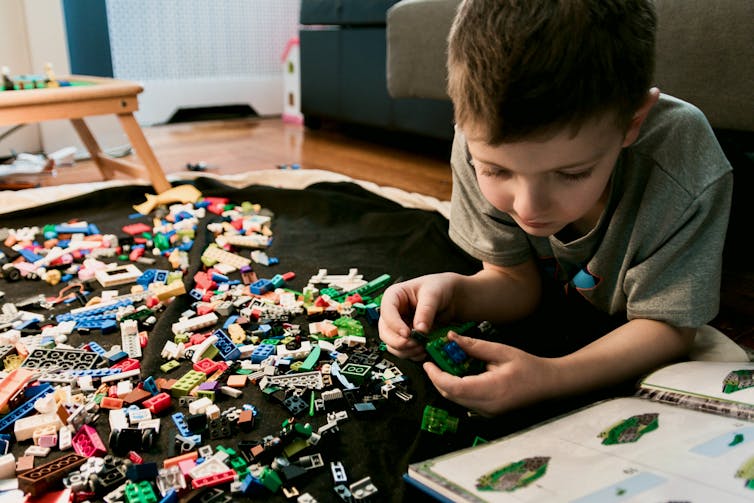Filter Content
- From the President
- ACPPAConnect and Wellbeing Webinars
- Australian Catholic Super
- Students’ well-being must always be the priority. Here are 5 tips to help them through lockdown
- Catholic Education Enrolment Toolkit 2021
- New resources now available from Caritas Australia
- A good induction is important for all new jobs. So why are teachers being left behind?
- WOODS Furniture
- ACU Executive Education Opportuntiy
- 2021 Young Voices Award Winners
- Child Protection Sunday
- Australian Teacher Workforce Data Survey (ATWD)
- Switch Education
- Seasons For Growth
- Catholic Church Insurance CCI
- Digital Innovation Roundtable Summary 2021
- Just a thought!
Dear Colleagues
Over recent times we have all seen and felt the impact of COVID on our families, our work colleagues and our communities. As leaders in schools, whether you are directly affected or not by restrictions and lockdowns, we are all very aware of the growing concern for the health and wellbeing of teachers and staff.
Whilst there are many articles which address how to manage in these times as well as lists of suggested help and activities to keep us all motivated, our prime responsibility and focus must be good and regular communication with all in our care.
Our staff, students and families need us to be the conduit for both understanding and reassurance in these tough times. As leaders, the way we communicate with our people demonstrates our continuing care, strengthens our relationship with them and allows a sense of security in knowing that things will be ok!
In looking after your community, I encourage you to ensure you care for yourselves so that you have the resilience and wellbeing to continue to lead.
Here is a link to a thoughtful video which may be useful for use with your staff:
Thank you for all you are doing as Catholic Primary Principals. You are highly valued and appreciated.
Regards
Brad Gaynor
President
ACPPAConnect and Wellbeing Webinars
The development of ACPPAConnect continues to grow with more Principals subscribing to our Update If you have not yet had a look, please visit our website or click the image below for access with your supplied username and password. if you don't have this, please contact paul.colyer@acppa.catholic.edu.au
'Five Ways to Wellbeing' Webinars - Coming Soon
As part of our strategy to support Principal wellbeing and in response to the emerging demands of continued lockdowns and remote learning across the country, we have been working with our Premium partner Australian Catholic Super and also Superfriend, to bring you a one hour 'shot in the arm' for your own health and wellbeing.
The same webinar will be delivered 3 times in October on the dates below to allow you the flexibility to choose a time that works for you and your calendar.
Invites will be sent out very soon with registration details included.
Save a Date
Thursday October 14th 12pm (AEDT)
Thursday October 21st 4pm (AEDT)
Thursday October 28th 5pm (AEDT)
Proudly supported by
Students’ well-being must always be the priority. Here are 5 tips to help them through lockdown
7 min read

Nicole (Nikki) Brunker, University of Sydney
We all know the challenges lockdowns are creating for our children during the COVID-19 pandemic. However, providing effective support for their social and emotional well-being may help us look beyond fears to the possibility of making gains during this interruption to our familiar lives.
Social and emotional well-being relates to the ability to understand ourselves, and others, and to manage life’s challenges. This calls for skills such as being able to:
- understand and engage with our emotions and the emotions of others
- form and build positive relationships
- take on and persist with challenges.
Well-being is a broad concept that encompasses the individual and their context, recognising variation among children. It’s crucial to remember well-being is a process of both experience and development, so skills vary with age and circumstances.
Well-being is greatest cost of lockdowns
Loss of well-being was shown to be the greatest cost of lockdowns for students schooling from home in 2020.
The experience of schooling during lockdown varies, but the greatest impact is that it makes existing inequities worse. The lives of too many children and young people are filled with enormous difficulty and limited opportunities. This was the case before lockdown, but the problem has grown.
Schools continue to work tirelessly to meet students’ needs. It is important to recognise there are social issues that require extensive work beyond schooling.
Developing skills helps with well-being
The individual aspect of social and emotional well-being involves the ongoing development of key skills. These skills have been variously termed soft skills, 21st-century skills, general capabilities, and dispositions. These skills grow and develop as our life experience expands and the challenges we encounter become more complex.
The benefits of developing social and emotional well-being are important in themselves. However, research has long shown the benefits extend to academic learning.
Well-being skills have been recognised as helping students with schooling during lockdown. Self-organisation, autonomy and adaptability enable students to thrive during lockdown. Schooling during lockdown also provides an opportunity to develop these skills in the context of life’s other challenges.
Read more: Students who are more adaptable do best in remote learning – and it's a skill we can teach
What can we do to support children’s well-being?
What can we do to support our children’s well-being in lockdown and beyond through the pandemic?
1. Focus on the potential gains.
We don’t simply “bounce back” from adversity; we need to be able to move forward by supporting our children to work with the challenge of adversity. This includes adults in their lives modelling how to do that, which helps children develop the skills to cope with further adversity that they will inevitably face in their lives.
Research is not showing learning loss through schooling under lockdown, as the latest NAPLAN results also indicate. It is showing gains can be made by working with the situation.
Read more: Early NAPLAN results show promise, but we don’t know the full impact of COVID school closures yet
2. Look after our own well-being.
Remember the oxygen mask principle – we need to take care of ourselves to be able to support our children’s well-being. Children develop the skills to self-regulate – that is, they learn to understand and manage their own emotions – when supported through co-regulation with adults. We can only do that when we are taking care of our own well-being.

3. Attend to daily essentials for all.
Play, exercise, get outdoors, socialise and monitor engagement with news media. Each of these activities will look different from what we would choose outside of lockdown, and there are lots of possibilities.
Engaging in unfamiliar ways of doing our everyday activities builds our well-being by developing our ability to be flexible in our thinking and adapt to changing situations.
Read more: 5 tips from a play therapist to help kids express themselves and unwind
4. Develop personal skills.
Key skills include self-organisation, autonomy, flexible thinking and adaptability. Well-being is learned through explicit approaches, life experiences and modelling.
We can support children by helping with routines and organisation to enable them to not be overwhelmed.
At the same time, encourage independence through activities they complete without you, such as a Lego challenge. Some other simple things to do include: encourage reading, play board games, promote creative (tech-free) play and teach simple strategies to cope with stress such as the 5, 4, 3, 2, 1 grounding technique.
Read more: Books offer a healing retreat for youngsters caught up in a pandemic
5. Adjust expectations to the situation.
As we adapt to the circumstances, our expectations need to adapt. Kids will have more screen time for schooling, socialising and, yes, gaming, which will support their well-being.

Read more: Time well spent, not wasted: video games are boosting well-being during the coronavirus lockdown
Kids will get distracted, have ebbs and flows in motivation, won’t complete everything for school, will refuse to do some things and will need to take time away from schooling. Give space for this to be acceptable. Remember to model how you manage your own distractions and other responses to working in this different context.
Also, stress looks different in kids. They might be rude, defiant, angry and avoid doing things - even the things they love.
The dominant approach to children’s behaviour at home and school is reward and punishment. It induces a stress response to trigger change in behaviour, so only escalates the stress our children are experiencing now.
Talk and listen to each other’s concerns to find solutions. Recognise when things aren’t a priority for now, such as cleaning their bedroom every week.
There is room for us to gain from the experience of lockdown. We might just need to shift our focus.![]()
Nicole (Nikki) Brunker, Lecturer in Education, University of Sydney
This article is republished from The Conversation under a Creative Commons license. Read the original article.
Read LessCatholic Education Enrolment Toolkit 2021
Following extensive consultation and exploration NCEC has gained a collective understanding of how each Diocese progresses enrolments and explores parent perception. We met and collaborated with all State and Territory offices to recognise the various starting points at Diocesan level. NCEC identified and explored what can be shared, utilised through the network/ working group, and scaled to support leaders in Catholic education.
In line with the NCEC strategic priorities the Enrolment Toolkit and the accompanying professional learning is aimed at supporting leaders in Catholic education by utilising various data sets, surveys, and tools to increase enrolments. The Enrolment Toolkit has been designed to enable colleagues in schools and systems to access at different starting points.
NCEC would like to acknowledge the significant contribution of the Enrolment Working Group from across Catholic education nationally: Sally Egan NCEC (Chair), Nicola Taylor NCEC, Geoff Miller NSW, David Doyle Parramatta Diocese, Damien Brotherton NT, Steven Jeffery Queensland, Uby Faddoul SA, Steve Denniss Tasmania, Bruce Phillips Victoria, Gunther De Vos WA, Frank Malloy Marist Schools, Mareez Fernando Canberra Goulburn.
If you require any further information please be in touch with Sally Egan (sally.egan@ncec.catholic.edu.au).
New resources now available from Caritas Australia
Updated Catholic Social Teaching Toolkit – Care for Our Common Home
Available at: https://www.caritas.org.au/learn/cst-toolkit/care-for-our-common-home/
New! Caring for Creation resources - a series of 'See, Judge, Act' lessons on the environment and the theological imperative to care for the earth and each other.
Primary - https://bit.ly/3gxV0k7 Secondary - https://bit.ly/3mz6vvx
We are inviting all schools to participate in our Catholic Earthcare #act4ourcommonhome campaign through the Season of Creation by sharing their ecological actions.
Finally, we encourage all teachers to join the new Caritas Australia Justice Education Facebook Group - https://www.facebook.com/groups/3125271991128797
A good induction is important for all new jobs. So why are teachers being left behind?
5 min read

Anna Sullivan, University of South Australia; Andrea Reupert, Monash University; Michele Simons, Western Sydney University; Neil Tippett, University of South Australia; Simone White, Queensland University of Technology, and Stuart Woodcock, Griffith University
Australian schools are struggling to recruit and keep teachers. Low wages, overwork, difficult student behaviour, lack of support and stress are some of the reasons teachers leave the profession or have periods of sick leave.
More than half of teachers with a current teaching qualification are not working in education. States such as New South Wales are facing major difficulties in employing teachers. This is especially so in the case of casual teachers who are needed to replace stressed and sick teachers.
Part of the reason for the teacher shortage is Australia’s lack of support for graduating teachers to successfully transition into the profession.
How does this work?
The transition for graduate teachers into the profession can be very challenging and they need to be supported with a quality induction program. Such programs help new teachers learn more about their roles, gain confidence and refine their teaching skills.
They are especially important for new teachers learning how to effectively manage diverse classrooms and student behaviour.
According to the Australian Institute for Teaching and School Leadership, induction programs should be:
-
school-based
-
delivered over two years
-
embedded in daily practice
-
practice-focused to further develop teaching skills.
From doing research in this area, we know Australian schools have responded to this need and increasingly developed induction programs to support new teachers over the past decade.
But it can take teachers several years to find long-term employment, which means many new teachers miss out on effective induction programs.
Research from 2019 shows that, within the first two years of graduating, 60% of new teachers are employed as insecure replacement teachers. We know
-
30% of new teachers are employed on contracts of less than one year
-
30% of new teachers are employed as casual teachers.
This leaves many new teachers relying on the strategies they develop during their insecure work experience to manage diverse classrooms and difficult student behaviours.
Newly qualified teachers who aren’t involved in a good induction program are more likely to leave the profession within their first five years of teaching.
No induction affects students too
Teachers employed casually or on short-term contracts know it is important to understand students’ strengths, needs and interests, as well as build good relationships with them. But they often don’t have the time or opportunity to do this properly.
Read more: Six ways to support new teachers to stay in the profession
They know curriculum and pedagogy are important, yet often don’t know what the regular teacher had planned. And they haven’t always got time to assess and understand the students’ learning needs.
Short-term teaching work leads to a reliance on surviving or just getting through the day. Typically, this means managing student behaviour using more reactive techniques such as rewards and consequences (punishments).
On top of this, newly qualified teachers may feel anxiety about their uncertain job prospects and the potential loss of income.

Teachers employed for a short term usually try to perform as well as they can, so they get a subsequent job. This means they are usually reluctant to let anyone know they need help. They are aware they are being scrutinised and it’s important they are seen as being capable of managing students’ behaviour. More controlling approaches can help them achieve this.
Such teaching approaches mean they are not attending to the students’ problem behaviours in a way that prevents them from reoccurring. This can lead to an escalation of these behaviours over time and result in the student being disaffected at school.
Read more: How teachers are taught to discipline a classroom might not be the best way
Teachers need to develop a broad range of proactive strategies to build a positive learning environment and prevent student behaviour problems. They must also be able to intervene effectively to de-escalate issues when they arise.
Much of this learning is based on developing and refining classroom management strategies during the induction period with the support of colleagues.
We’ll keep losing teachers
Induction programs are focused more on permanent new teachers. But the majority of new teachers are contract or casual staff.
A one-size-fits-all approach to induction programs will not address the specialist needs of casual teaching staff, particularly graduate teachers who move regularly between diverse school settings as work demands require.
Read more: Teachers shouldn't have to manage behaviour issues by themselves – schools need to support them
Education departments should support schools, including financially, to include casual and contract teachers in meaningful induction programs. They should also think more creatively about what is possible because this problem rests with them.
If we don’t develop meaningful ways for new teachers to be inducted into the profession, we may keep losing them.![]()
Anna Sullivan, Associate Professor of Education, University of South Australia; Andrea Reupert, Professor, School of Educational Psychology & Counselling, Monash University; Michele Simons, Dean of Education, Western Sydney University; Neil Tippett, Research Fellow, University of South Australia; Simone White, Professor, School of Education, Queensland University of Technology, and Stuart Woodcock, Associate Professor, School of Education and Professional Studies, Griffith University
This article is republished from The Conversation under a Creative Commons license. Read the original article.
Read LessACU Executive Education Opportuntiy
2021 Young Voices Award Winners
Congratulations to the winners of the 2021 Young Voices Award, brought to you by Australian Catholics magazine in conjunction with Australian Catholic University.
The winners of the 2021 Australian Catholics Young Voices have been selected from more than 700 entries across the Junior (Years 5 and 6), Intermediate (Years 7 to 9) and Senior (Years 10 to 12) sections. Students were able to enter written, photographic or digital projects.
The young age of some of the entrants was no barrier to the seriousness of the topics they explored, which ranged from climate change, issues of equality such as racism and gender equality, to abuse and exploitation of humans and animals.
Jesuit Communications director Michael McVeigh said in selecting the winners, the judges went for those works they felt had the strongest impact. Judges also tried to ensure that recognition was given to entries across all formats.
‘The judges were impressed by the time and effort taken with all of the entries’, Mr McVeigh said. The winning entries appear in the Spring edition of Australian Catholics, and will also be available online. ‘It’s a great privilege to be able to offer a platform for young people to speak engagingly, and creatively, on issues they’re passionate about.’
The winner of the Junior Section was Lucia Minto, St Joseph’s Primary School, The Junction, NSW for her video entry ‘The cover is not the book’. The entry looked at discrimination from both a personal and an objective perspective. Junior Runner-up was Madison O’Brien, St Anthony’s Catholic College, Deeragun, Queensland, whose video entry was an interview with an Indigenous Support Officer about racism and being Indigenous in Australia today.
Junior Section
Winner
Lucia Minto, St Joseph’s Primary School, The Junction, NSW.
Runner-up
Madison O’Brien, St Anthony’s Catholic College, Deeragun, Qld.
Honourable Mention
Maddie Lusby and Xavier Mulley, St Joseph’s Primary School, The Junction, NSW; and Sophie Nikolarakos, St Joseph Primary School, Brunswick West, Vic.
Highly Commended
Lucy Webber, Bonnie Petersen, Abbie Hartnett, Gizelle Griffiths, Josephine Ryba, Meera Sinha, Patrick Aguado, Aidan Soldado, Abi Taber, Isabelle Emmett, Isaac, Chase Firman, Ella, Lillian Scanlon, Eva Cootes, Eden Buxton, Ivy Jones, Ivy Stevens, St Joseph’s Primary School, The Junction, NSW; Quinn Penhale, Joseph Fischer, Aurelia, Giselle Gentilin, Jada Ferrante and Lilly Montalto, St Joseph’s Primary School, Brunswick West, Vic; Nadia Nupiri, Holy Cross School, Trinity Park, Qld; Emily Buriak and Olivia Massey, Loreto Kirribilli, NSW; Lexi Andrews and Piper Kenealy, St Mary’s PS, Malvern East, Vic; Gabriella Abouzeid and Alexia Plakidis, St Peter Chanel PS, Regents Park, NSW; Grace McGillion, St William’s PS, Keperra, Qld; Molly and Oliver Dempsey, St James’ PS, Kotara South, NSW; Lucy Andrew, Holy Cross PS, Kincumber, NSW; Amelie Francesconi, St Catherine Laboure’ PS, Gymea, NSW; Celeste Dalby, St Francis Xavier PS, Ballina, NSW; Milly Collins and Ava O’Brien, St Thomas More PS; Mount Eliza, Vic; Rosita Arias, Don Bosco Catholic PS, Narre Warren, Vic; Simone Lionetti and Isabel Pender, Genazzano, Kew, Vic; Brock Hamilton, Sacred Heart PS, Corryong, Vic; Sabrina Marigliano, St Joseph’s PS, Como, NSW; Gizelle Girgis and Marcus Yap, St Justin’s PS, Wheelers Hill, Vic; and Lilly Robinson, St Therese’s, New Lambton, NSW.
The theme for this year’s Child Protection Sunday is: Every child, in every community deserves a fair go. On this day we recall the terrible suffering of people who were abused as children in our Church. We touch again our shame, and resolve, ‘Never again’.
This resolution is central to our Catholic Church. It flows from our mission, which comes from God. We are called to be a community that follows Jesus and attracts people to recognise God’s love. The Church is called to be place of love, generosity, respect, forgiveness, prayer and hospitality - all the qualities found in Jesus’ life.
That is our Catholic ideal. The reality, of course, is much more mixed. In our relationships we often fail in love and respect. We need to work at all the relationships that make up our church so that they reflect the values enshrined in our mission. The love and respect that Jesus shows in the Gospel stories must be shown in all Church decisions, meetings, protocols, guidelines and relationships. It must translate into welcome at the Church door, geniality in answering phones, promptness in responding to requests, and care to listen to complaints. The way in which we do things must reflect our mission.
ENSURING ALL CHILDREN GET A FAIR GO
Above all Child Protection Sunday invites us to ensure that the relationships within our Church express respect for children who are so precious in God’s sight. Our procedures must protect people from disrespect. Respect must be translated into policies, protocols and guidelines that spell out in detail how as Catholics we keep children safe and hold adults responsible. This is vital. Abuse and official tolerance of it could happen only because there were no safeguards against it.
This day also invites us to thank God and people responsible for the enormous work that has been done to ensure that children are safe in Church settings. In most of our Catholic parishes and schools we can say fairly confidently that children get a fair go. We need to keep working to ensure that they continue to do so
Child Protection Sunday reminds, us, too of our larger responsibility to people who, like children, have less power in our Church. In the relationships of priests with parishioners, spiritual guides with clients, managers with employees, and volunteers with those they help, people with less power must be protected. This respect gives flesh to Christ’s mission in day-to-day life.
READINGS FOR SAFEGUARDING SUNDAY, 24TH SUNDAY IN ORDINARY TIME
The readings for Safeguarding Sunday do not have anything specific to say about the policies, guidelines and practices involved in protecting children. They focus rather on the depth and the cost of following Jesus in his way of love and respect. They suggest also that we always need to look at protection from the perspective of persons who are vulnerable, not of the Church as an organisation.
First Reading: Isaiah 50:5-9
The First Reading from the Book of Isaiah is one of several prayers put into the mouth of God’s servant who has been cruelly treated for his faithfulness, and yet keeps trusting that God is with him. The early Christians saw in these prayers the words of Jesus as he suffered a rigged trial, condemnation, torture and a humiliating death. They emphasise the cost of following Jesus’ way of love. They remind us that respect for one another can demand much from us. They also remind us that the victims of disrespect suffer what Jesus did. We find him present in them.
Responsorial Psalm: Psalm 116:1-9
The psalm is the prayer of someone who has faced death and suffering and has been freed from danger. It is a prayer of relief and thanksgiving. The Psalm encourages us to enter into the experience of people who as children have been abused in the Church, and to pray that God deliver them from the trauma, depression and turmoil that they have suffered so that they can live fully.
Second Reading: Letter of James 2:14-18
The Letter of James, a plain blunt man, reminds us that the test of Christian faith does not lie in the words we use about it, the promises we make and the rules we compose but in how we put these words, promises and rules into practice in what we do. James gives us the example of our response to people in need who ask us for help. It is not enough to speak nicely to them. We are called to help them. This reading urges us always to look at our relationships from the perspective of the person in need. It also reminds us of the cost involved in our faith, and so of the depth to which following Jesus takes us.
Gospel: Mark: 9:27-35
The Gospel story builds on the prayer of God’s servant in the reading from Isaiah. Peter has come to believe that Jesus is the one whom God has promised and sent. He then assumes that Jesus’ path will be full of roses. When Jesus says that he will suffer and be killed, Peter can’t believe it. His faith is shallow. This story also reminds us of the depth of commitment to which faith and respect for one another will take us, and invites us to see Jesus’ face in those who like him have not been respected and kept safe in our Church.
Thanks to Australian Catholics Magazine
Australian Teacher Workforce Data Survey (ATWD)
Although part of the same profession, every teacher has a unique experience. To truly understand the modern teaching experience, we need all teachers to share their insights annually. Every teacher’s story is an important part of the overall picture.
When every teacher’s story is combined each year, it contributes to an evolving picture of the national teacher workforce that will help us understand how best to support teachers into the future.
The ATWD Teacher Survey is the largest survey of the teacher workforce in Australia. It is a voluntary, 10-minute survey that is sent annually to all registered teachers in Australia. Over 31,000 teachers participated in 2020.
Insights from the ATWD
The ATWD will provide us with insight on a range of issues, including:
- how many teachers we have and what they are qualified to teach
- what the gaps are in the qualifications and specialisations of the teaching pool
- whether our future graduates will fill current and future gaps in the teaching pool
- the employment and teaching challenges experienced by early career teachers and the support they receive from employers
- the number of hours teachers spent on teaching, preparing to teach and non-teaching activities
- how often teachers are asked to teach out-of-field
- how common short-term contracts are compared to permanent employment
- what the pathways and barriers to leadership roles are
- how many teachers plan to stay in teaching, move into leadership or start another career.
For more information : www.aitsl.edu.au/atwd
Helping students overcome change and uncertainty
The cumulative impacts of recurrent COVID-19 lockdowns have been compounded by natural disasters in many Australian communities. These successive disasters have also taken a toll on the whole school community, including teachers, leaders and students.
Research suggests that 85% of parents have reported changes in their children during lockdowns. Victoria’s Commission for Children and Young People found that one third of young people surveyed reported psychological distress as a result of the pandemic. The experiences negatively affect children and young people’s development and overall social and emotional wellbeing.
The MacKillop Institute is committed to supporting professionals to support children and young people impacted by uncertainty as well as significant change and loss experiences. The Institute’s Seasons for Growth evidence-based programs are based on the belief that change and loss are a part of life, and grief is the normal response to these losses. Seasons for Growth helps children and young people respond to adverse events and they are more likely to adapt well given timely and appropriate information and support.
“The core intentions of Seasons for Growth programs are the development of resilience and emotional literacy to promote social and emotional wellbeing, with the overarching aim to improve the quality of life of children and young people,” says Fiona McCallum, general manager of Seasons for Growth. The programs are also designed to help with other experiences that may trigger feelings of loss including include family separation, death, parental imprisonment, loss of a pet, illness, moving house or school.
Seasons for Growth is an eight-week small group program, led by a trained facilitator from the school, and it invites young people to practice new ways of responding to change, understanding the effects of change, loss and grief while developing skills in communication, decision-making, and problem-solving. It incorporates a wide range of creative learning activities with content that is highly visual and age appropriate across four different primary and secondary levels.
In the past 12 months over 1,400 professionals across Australia have been trained in the programs. “One facilitator recently described Seasons for Growth as an essential preventative measure for kids”, McCallum says. She also emphasises the importance of working with school systems and the Beyou wellbeing teams to support the integration of the programs with other school wellbeing initiatives.
Resources are also developed for parents and carers to support the wellbeing of their children. Research has indicated that the capacity of parents and carers is often impaired following major change and loss in families.
The Seasons for Growth programs meet the Australian Professional Teaching Standards. It’s third edition released in 2015 reflects developments in research evidence and practice wisdom, strengthening the program links with theoretical frameworks. This research evidence is foundational to the programs and new evidence will continue to inform updates.
A trained facilitator from the NSW south coast captured the value of the program recently, stating that ‘Seasons for Growth is really a program for the times we are living in.’
Helpful support resources to download and share with your school community
Find out more, how to offer the Seasons for Growth program to your school
Contact godelieve.hofmanverkuyl@mackillop.org.au
Good Grief is on Facebook and LinkedIn
Digital Innovation Roundtable Summary 2021
Recognising that digital technologies are playing an important role in supporting school’s as they adapt to a rapidly changing and connected world, Education Services Australia (ESA) hosted a Digital Innovation Roundtable for school leaders in July 2021.
Attached is a copy of the Education Services Australia Digital Innovation
Roundtable 2021: Summary Report.
Participating principals engaged in constructive and open discussion on how digital innovation in schools assists in addressing educational challenges and exploring new opportunities to improve learning outcomes.
The summary highlights the rich and varied experiences and valuable insights shared by principals across four key themes:
• Connectivity and access continue to present significant challenges.
• Digital technology enables student agency for many but not all students.
• Teacher capability, motivation and collaboration contribute to digital innovation.
• Digital technologies facilitated connection, collaboration and partnership between schools and communities.
















